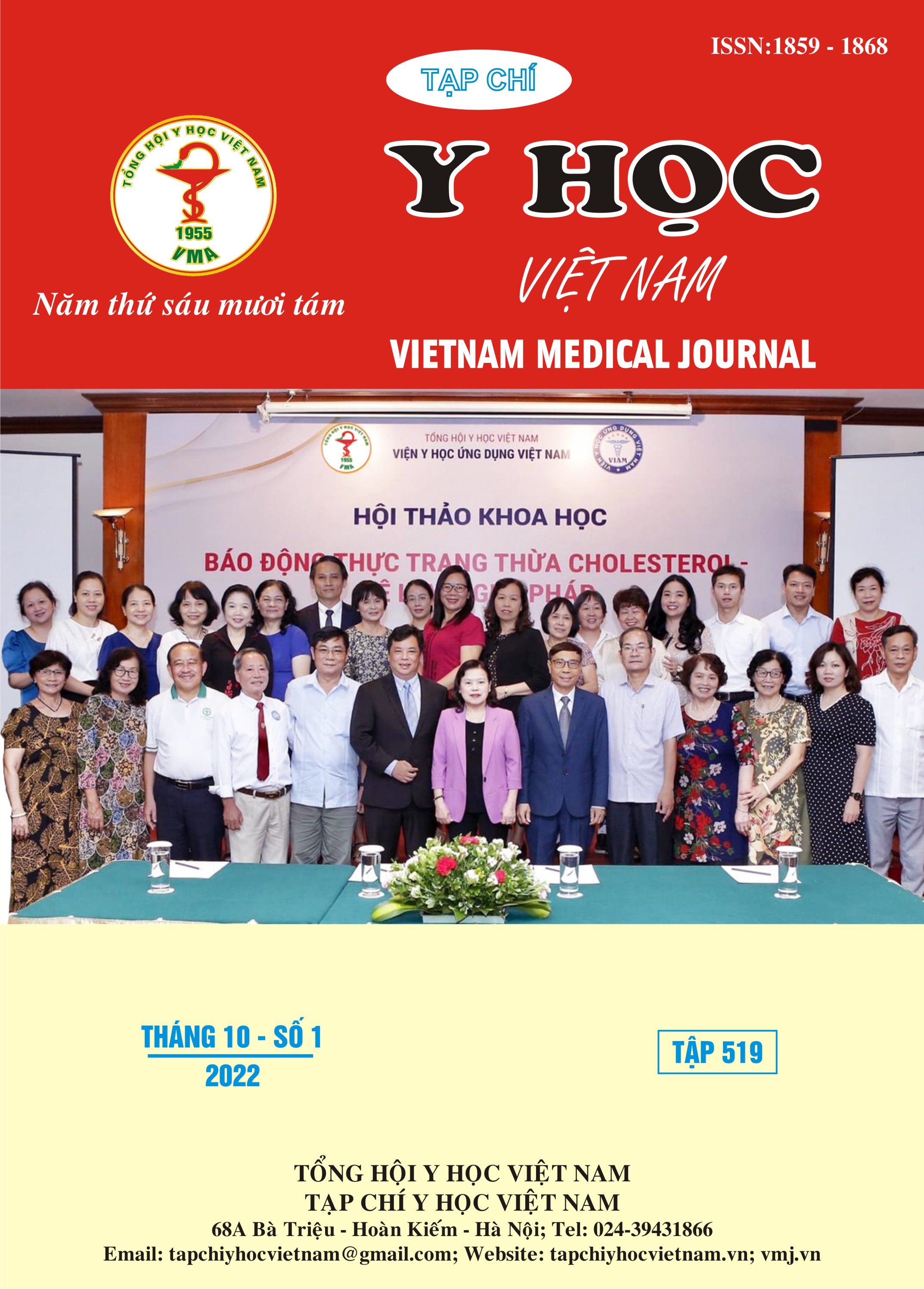CLINICAL CHARACTERISTICS AND PRELIMINARY RESULTS OF TREATMENT ALK MUTATION NON-SMALL LUNG CANCER WITH TKIs – CERITINIB
Main Article Content
Abstract
Objectives: The aims of our study were to access clinical characteristics and investigate response rate and related factors of tyrosine kinase in ALK mutation NSCLC. Patients and Methods: Observational study from January 2019 to June 2022, we enrolled 69 patients have ALK mutation . All patients were treated with ceritinib. Tumor response rate, other related factors were determined. Results: Mean age 52.6 ± 11.5; female 52.2%, non-smokers 59.4%. 63.8 % was unpretreated patient. Poor personal status was 11,5%. 3 or more organ metastasis accounts for a high rate of 49.3%. Brain metastasis had a high rate of 36.2%. Adenocarcinoma was found in 89.9%. NGS test identified mutations in ALK gene accounting for 55.1%; RT-PCR accounted for 27.5%, HMMD staining 13.0% and FISH 4.3%. 97.1% were performed on tissue samples. Response rate: Complete response 10.1%. Partial response rate was 66.8%. Disease control rate was 87.0%. CNS response rate was very impressive 72.0%. Age, gender, smoking status, pretreated chemotherapy, personal status and brain metastasis are not related to response rate respectively. Conclusion: Stage IV non-small cell lung cancer patients has ALK gene mutation are common in younger, female, non-smokers, and have high rate of brain metastasis. Ceritinib has a high response rate, especially with CNS metastases.Response rate is not related to the clinical characteristics.
Article Details
Keywords
tyrosine kinase, ALK mutation, non-small cell lung cancer
References
2. Sung H., Ferlay J., Siegel R. L. et al (2021), Global Cancer Statistics 2020: GLOBOCAN Estimates of Incidence and Mortality Worldwide for 36 Cancers in 185 Countries, CA Cancer J Clin. 71(3), 209-249.
3. Nguyễn Thị Hoài Nga Phan Thu Hải, Phạm Quang Huy và cộng sự (2008), Bệnh ung thư phổi, Dịch tễ học và cơ chế sinh bệnh, Nhà xuất bản Y học, Hà Nội, 7.
4. Bộ Y tế Việt Nam (2018), Hướng dẫn chẩn đoán và điều trị ung thư phổi không tế bào nhỏ, Bộ Y tế, chủ biên, Bộ Y tế - Cục quản lý khám chữa bệnh, Hà Nội.
5. Network National Comprehensive Cancer NCCN clinical practice guidelines in oncology (NCCN Guidelines™): non-small-cell lung cancer. Version 7.2019, truy cập ngày-10/29/2019, tại trang web www.nccn.org.
6. Pan-Chyr Yang Yuankai Shi, Joseph Siu-kie Au, et al (2012), Molecular Epidemiological prospective study of EGFR mutation from Asian patients with advanced lung adenocarcinoma (PIONEER), J Clin Oncol. 30, 1534.
7. Soria J. C., Tan D. S. W., Chiari R. et al (2017), First-line ceritinib versus platinum-based chemotherapy in advanced ALK-rearranged non-small-cell lung cancer (ASCEND-4): a randomised, open-label, phase 3 study, Lancet. 389(10072), 917-929.
8. Lipson D Capelletti M, Yelensky R, et al (2012), Identification of new ALK and RET gene fusions from colorectal and lung cancer biopsies, Nat Med. 18, 382-384.


